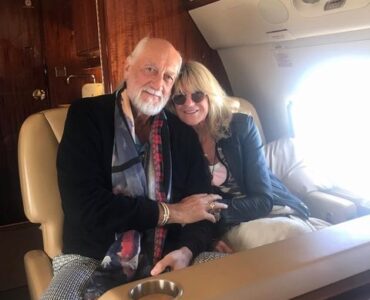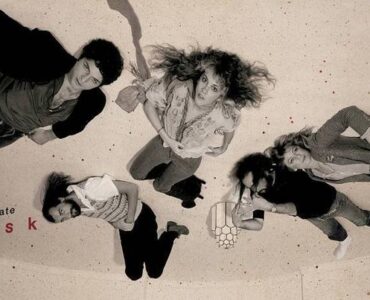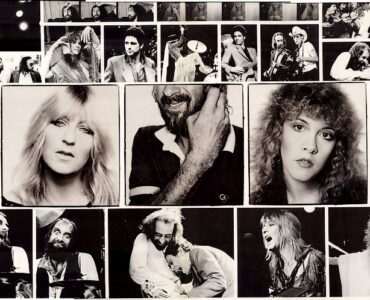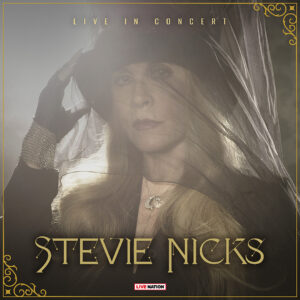Pop music’s worst business summer in recent years is drawing to a close, and some insiders in the music industry are saying that an era appears to be ending.
Summer concert revenues are down drastically from previous years, pop record sales are a fraction of what they were in the 1970’s, and music industry executives are increasingly concerned that young people are taping albums rather than buying them and spending their money on video games rather than on records and concert tickets.
CBS Records announced yesterday that it was discharging 300 employees — 15 percent of its professional staff -including several vice presidents, and reducing its regional branch offices from 20 to 10.
Robert Altschuler, the company’s vice president of press and public affairs, attributed the dismissals and branch reorganization to “current and projected market conditions.”
‘Real Bottoming-Out’
Another insider in the record business said that there had been “an almost complete lack of business, a real bottoming-out.” The CBS action is the latest and most severe cutback in a wave that has swept the industry and is expected to continue at other companies.
Ironically, many of rock’s top artists and most rock critics feel that artistically the music is stronger and fresher than it has been in a long time. A number of established artists have just made their best albums in years, and the big-city rock-club circuit has been launching a succession of new bands. But these bands have been spectacularly unsuccessful in attracting audiences.
Ever since the beginning of the 1970’s, when pop music surpassed motion pictures as America’s biggest-grossing entertainment medium, summer has meant big outdoor concerts, big cross-country tours by rock’s most popular bands and a full schedule at such rock concert halls as the Asbury Park (N.J.) Convention Hall and the Palladium in New York.
The biggest groups used to time their album releases to the beginning of summer vacation, hoping to come up with one of those magical summer hits that blasts from every radio and sells like hotcakes from June through September. As soon as those summer albums hit the stores, the groups would hit the road, where the immense seating capacity of outdoor stadiums and summer rock festivals virtually guaranteed that they would “clean up.”
But those days are over. “Of 14 shows at the Asbury Park Convention Hall this summer, only four made money,” John Scher, New Jersey’s major rock-concert promoter, said. “Five years ago we would have called it a bad summer if we’d had three or four unprofitable shows. We also used to put on two or three big outdoor shows every year in Giants Stadium; now we’re doing one or two of those shows every one or two years.
“The only groups that can fill a Giants Stadium now are a small handful of very, very big acts — the Rolling Stones, the Who and Bruce Springsteen.”
Dropoff in Sales
“It’s the 1980’s, and the cream is definitely off the top of the business,” said Irving Azoff, manager of some of the biggest rock stars. Back in the 70’s, five of Mr. Azoff’s clients, the Eagles, sold 15 million copies of their “Hotel California” album and broke attendance records across the country. He also manages members of Fleetwood Mac, whose Rumours album almost matched the Eagles’ sales.
Now the Eagles have disbanded, and the band’s members are pursuing solo careers, with varying degrees of success. Fleetwood Mac has another No. 1 album, Mirage, but sales are in such a slump that it is unlikely to achieve more than a fraction of the sales of Rumours. While the group is going on the road this month, it will not be raking in the money at stadium concerts and outdoor festivals.
“Fleetwood Mac only had offers to do two outdoor shows in the whole country,” according to Mr. Azoff. “One was in a town that doesn’t have a large indoor arena; the other was the Us Festival, which is scheduled to take place Labor Day weekend in San Bernardino County in California and is going to be the summer’s only really big festival. There’s a very good reason why groups like Fleetwood Mac aren’t doing more stadium shows — the kids aren’t buying tickets.”
Charts Are Not a Guarantee
The kids are not buying records, either. As recently as the mid-70’s, the record industry was still enjoying the phenomenal spiraling growth that had carried it through the previous 15 years, when record sales doubled six times. Income from sales last year came to $3.6 billion, but the handwriting was on the wall; the industry shipped 55 million fewer albums and singles than in 1980.
Performance on the best-seller charts no longer means huge sales. CBS undertook its cutback in spite of the fact that 24 of its albums are in the top 100.
“Most of the executive-level record-company employees I know are being optimistic in public,” a CBS employee said recently, “talking about weathering a temporary downswing and learning to live with more modest expectations. But in private they’re talking Doomsday.”
The popular-music industry has singled out several villains to blame for its present ills. The record industry’s No. 1 villain is home-taping – the youngster with the cassette recorder who tapes a friend’s album or tapes the album’s best songs off the radio rather than buy the album.
Lobbying for Royalties
Stan Gortikov, president of the Recording Industry Association of America, charges that “last year our industry sold the equivalent of about 475 million albums.” “But at the same time,” he added, “about 455 million albums were home-taped.”
His figures, he said, were based on an elaborate survey financed and conducted by Warner Bros. Records in 1980. Record-industry leaders are lobbying for national legislation that would require manufacturers and importers of blank cassettes and cassette recorders to pay royalties to the record companies and artists who are ostensibly losing income because of taping. If the legislation were enacted, the cassette manufacturers and importers could probably be expected to pass their increased costs on to consumers.
Another likely villain is the sweeping popularity of video games. “I go down to the Asbury Park boardwalk now and see all these kids putting $5 or $10 worth of quarters into a video game,” Mr. Scher said. “There are hundreds and hundreds of those games along the boardwalk now, and there’s no doubt in my mind that an awful lot of kids who would have spent that money on records or concert tickets a couple of years ago are now spending it in the game arcades.
“Add to that the unprecedented number of popular youth-oriented movies that are showing this summer, and it adds up to a lot of competition for pop music.”
Lack of Promotion
No clear-cut connection can be proved, but most youngsters have limited allowances, and as revenues from video games continue to soar, revenues from record and concert sales plummet.
Then there is radio. CBS, Warner’s and the other major record companies have not been falling over one another to record and promote fresh young performers who might capture the imagination of record buyers and help reverse the slump. The new groups that do manage to win recording contracts get very little air play. Album-oriented rock stations, called AOR, have become entrenched and conservative, resistant to new sounds and new faces.
“Half the groups you hear on AOR these days are dead,” said Rick Carroll, program director at Los Angeles’s KROQ, one of the few successful FM rock stations that consistently play new bands and new music.
“Radio stinks,” Mr. Azoff said. “The stations are making a lot of money, but they just aren’t taking chances.” The song that gets the most air play and the most requests at FM rock stations nowadays is “Stairway to Heaven,” a track from a 1971 album by the defunct Led Zeppelin.
Rampant Standardization
In recent months, some of the leading AOR stations — WMET-FM in Chicago, WCOZ-FM in Boston and WLLZ-FM in Detroit — have seen their audience-popularity ratings tumble by as much as two-thirds. These and most other AOR stations maintain strict and very limited lists of what records disk jockeys are allowed to play, and in many cases the contents of the playlists are determined by successful programming consultants.
Even Lee Abrams, the most successful consultant — his Superstars format is heard on 80 AOR stations — concedes that the standardization has gotten out of hand. “Consultants have taken away the spontaneity and magic of AOR,” he added.
The ratings success in Los Angeles of KROQ, which is rapidly closing in on the city’s entrenched AOR heavyweights, KMET-FM and KLOS-FM, has given supporters of new rock some cause for optimism. Most new-wavers are convinced that their music would inject enough freshness and sparkle into radio to reverse the listener desertions that are plaguing more and more of the conservative, rigidly formatted AOR giants.
New-Wave Arena Fare
The way things are going in the rock-concert business suggests that this could be true. The promoters of an Aug. 21 concert at the John F. Kennedy Stadium in Philadelphia, one of the summer’s handful of big outdoor shows, beefed up a bill topped by the venerable British progressive band Genesis with two new-wave favorites, Elvis Costello and Blondie, rather than with standard arena-rock fare.
The country’s leading rock promoter, Bill Graham, is leaning heavily toward new-wave groups in booking for the Us Festival, which is scheduled to include an elaborate computer and video fair and is the only really ambitious outdoor festival of the season.
Groups that have agreed to perform include the Police, the Talking Heads, the English Beat and the B-52’s as well as the more established and conservative Fleetwood Mac, Santana and Jackson Browne.
Many insiders feel that the record industry’s ills boil down to a simple lack of consumer interest and that most of the music that CBS, Warner’s and the other big labels have been recording and releasing in recent years has not been engaging.
Problem of Boredom
Rock critics tend to agree; albums made by young groups with strong local followings and released by small independent labels have placed at or near the top of most critics’ annual 10-best-albums lists. Some of the small labels that have been releasing consistently vital music are Sugarhill of Englewood, N.J., which has popularized rap records, a black, inner-city phenomenon, and the punk-oriented Slash label, which built the popular Los Angeles club bands X and the Blasters into nationally known acts.
The critics feel that many of the rock fans who seem bored with the latest superstar product would take to the music of the younger performers if the fans were exposed to it. But AOR stations do not play the new material, and only record stores that sell imports and independent releases to a relatively small and discriminating audience stock it.
Some established artists whose records do get played on radio and sold in the major chain stores feel threatened by the new wave of youngsters. But a surprising number of stars agree with the newwavers and critics that AOR radio is boring and that the major record companies are not signing enough younger performers.
In recent conversations, Rod Stewart, Mick Jagger of the Rolling Stones and Peter Wolf of the J. Geils Band criticized radio and the major labels for playing it safe and praised a number of younger bands and independent record companies for taking chances.
‘Hard to Keep Up With Them’
“Anybody who thinks this is a lousy period for music just isn’t listening,” Mr. Wolf said. “Every city has good bands playing original songs and clubs where they can play, which is something you didn’t see back in the early and middle 1970’s. There are so many new bands coming up with fresh ideas and playing with the kind of fire that rock-and-roll is supposed to have that it’s hard to keep up with them.
“We all listen to all the new music we can get our hands on, and we pay particularly close attention to college radio stations, which are the only stations consistently playing the new, adventurous stuff. Fortunately, we live in Boston, where there’s great college radio. People out there in Middle America don’t get a chance to hear much new stuff, if any. No wonder they’re not listening to the radio or going to as many concerts or buying as many records as they used to.”
If so many insiders agree on the causes and dimensions of the crisis, why is not more being done to combat it? “Our business just isn’t reacting,” Mr. Azoff said. “Actually, the big companies have reacted by cutting back, trimming their staffs and their budgets. I think there’s going to be more of that.
“And, of course, that means it will take even longer for the industry to get healthy again, because what’s going to be cut first? Who’s going to suffer?
“The new acts, the future of the industry.”
Robert Palmer / New York Times / August 14, 1982





